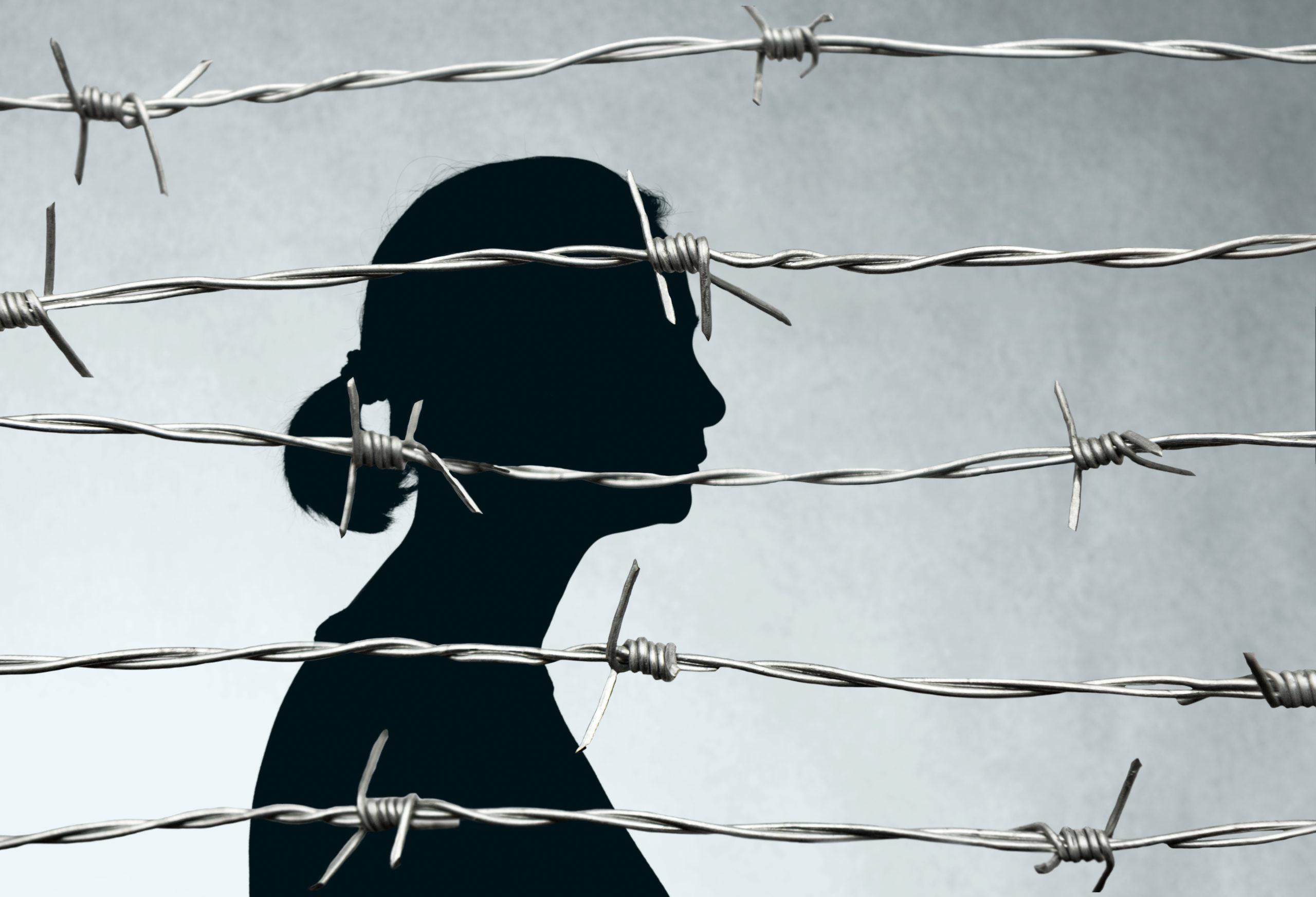What Would the End of Roe v. Wade Mean for Pregnancy Behind Bars?
A Supreme Court decision overturning the constitutional right to an abortion could force thousands of incarcerated people to carry pregnancies to term.

In a country where incarcerated people can still be shackled when they give birth, where they can be denied sanitary napkins or tampons at a guard’s whim, where gynecological exams can be more akin to assault than healthcare, what will it mean for prisoners if Roe v. Wade is overturned?
Largely, that answer depends on where they are incarcerated. If the U.S. Supreme Court overturns Roe, as it appears poised to do, states will once again be permitted to criminalize abortion. As a result, people could soon be subject to prosecution and prison time for seeking these medical procedures, providing them, or helping others access them.
If Roe is struck down, 26 states are certain or likely to ban abortion, according to the Guttmacher Institute, a reproductive justice research organization. Among them are the ten states with the nation’s highest rates of female incarceration, according to 2020 data released by the Bureau of Justice Statistics: Idaho, Oklahoma, South Dakota, Arizona, Wyoming, Kentucky, Montana, Arkansas, Mississippi, and West Virginia.
Abortion bans will have particularly devastating consequences for thousands of pregnant people incarcerated in U.S. prisons and jails, according to Carolyn Sufrin, associate professor of gynecology and obstetrics at the Johns Hopkins University School of Medicine. Low-income and Black and brown women, who are disproportionately represented in the criminal legal system, will likely feel the greatest impact from these policies.
If Roe is overturned, state and local lockups will likely abide by their state laws, Sufrin said, meaning that abortion may no longer be an option for incarcerated people in over half of the country. While some people in the community may be able to travel to another state to access abortion, it’s extremely unlikely that incarcerated people would have that option, she said.
“We are going to see this disproportionately impact incarcerated people,” Sufrin told The Appeal. “They’re going to feel the restrictions in an even more pronounced way.”
The incarcerated population would face many uncertainties in a post-Roe world, Sufrin said. For instance, it’s unclear if federal prisoners held in facilities throughout the U.S. would be subject to the law of the state where they’re incarcerated or the rules set by the Bureau of Prisons, a federal agency.
A similar question would likely arise for incarcerated people who are transferred to an out-of-state prison, which is often done to reduce overcrowding or to protect a prisoner’s safety. If someone convicted in a state that permits abortion is transferred to a state where it is banned, it’s unclear which law they’d be subject to, said Sufrin.
If an incarcerated person becomes pregnant as the result of a rape, federal Prison Rape Elimination Act Standards direct authorities to provide them with “timely information about, and access to, all lawful pregnancy-related medical services.” It remains to be seen what this would mean for people in states that ban abortion, according to Sufrin.
Even with Roe intact, some jail and prison systems have made it nearly impossible for incarcerated people to obtain an abortion, sometimes forcing them to fight in court to access their constitutional right to abortion care.
A study of 22 state prison systems, conducted by Sufrin and other researchers and published last year, found that prisoners in 13 states were required to pay for their own abortions—likely an insurmountable cost for people who may earn only pennies an hour. Three state prison systems prohibited incarcerated people from accessing abortions, even though courts have repeatedly established that Roe applies to prisoners.
Considering the “abysmal” state of healthcare in U.S. prisons and jails, being forced to carry a pregnancy to term behind bars is a particularly dangerous prospect for incarcerated people, said Corene Kendrick, deputy director of the ACLU’s National Prison Project. Several state prisons don’t have policies to screen or provide care for high-risk pregnancies, according to a 2019 survey conducted by Prison Policy Initiative.
Issues of poor health care and medical neglect could be further compounded in jails, which tend to house a more transitory population. In recent years, there have been a number of high-profile cases of pregnant women dying or being forced to give birth alone in their cells, after staff ignored their pleas for help.
Last year, Erica Thompson was six months pregnant and on her way to the hospital when deputies arrested her and took her to Florida’s Alachua County jail, according to local news reports. At the jail, Thompson said she was having contractions and begged to be taken to the hospital, but the nurse only gave her Gatorade. Shortly after arriving, she gave birth in her jail cell and was then brought to the hospital, where her baby died just hours after being born. In an internal investigation, the sheriff’s office cleared itself of wrongdoing.
If Roe is overturned, Kendrick said, more and more people behind bars will be forced to carry pregnancies to term in “systems that have proven historically that they’re incapable or have great difficulty in providing prenatal care.”
Editor’s note: Abortion is still legal. If you have an appointment, keep it. If you need to make an appointment, make one. The Supreme Court of the United States opinion is a leaked draft and not official.
